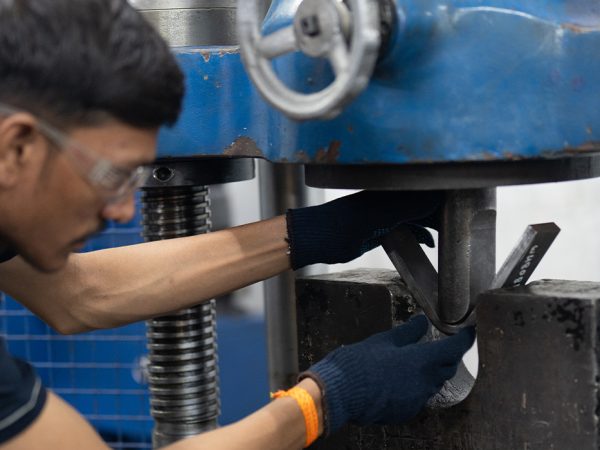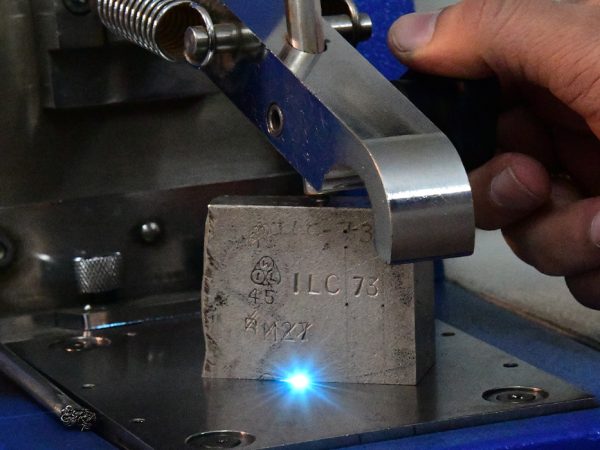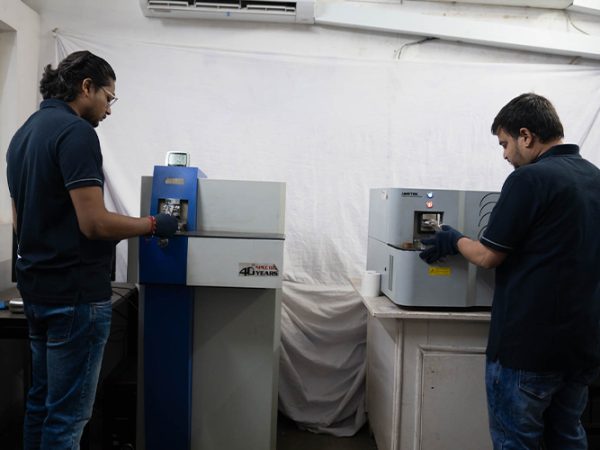In the industrial and manufacturing sectors, Failure and Root Cause Analysis plays a critical role in maintaining operational efficiency and avoiding costly downtime. Understanding why equipment fails and implementing solutions to prevent repeat failures is vital for industries ranging from power generation and petrochemical to aerospace and refineries. TCR Advanced Engineering has established itself as a leader in Failure and Root Cause Analysis, with experience across over 1800 failure investigation assignments spanning boilers, turbines, pipelines, heat exchangers, and industrial machinery.
What is Failure and Root Cause Analysis?
Failure and Root Cause Analysis is a systematic approach to identifying the fundamental cause of equipment or component failures. Rather than merely treating symptoms, Root Cause Analysis focuses on uncovering underlying issues that triggered the failure. By identifying the root cause, organizations can implement preventive measures that ensure operational reliability, extend equipment life, and minimize downtime.
Industries operating under high pressures, extreme temperatures, or with complex machinery cannot underestimate the value of Failure and Root Cause Analysis. Minor faults, if left unresolved, can escalate into catastrophic failures that result in production stoppages, expensive repairs, safety hazards, and reputational damage.

Why is Failure and Root Cause Analysis Important?
Failure and Root Cause Analysis offers several critical benefits to organizations:
Prevent Recurrence
By pinpointing the exact root cause of failures, Failure and Root Cause Analysis ensures the same issue does not reoccur. Organizations can implement corrective actions, whether through design improvements, enhanced operational procedures, or preventive maintenance. Over time, this approach builds a proactive culture that reduces repeated failures.
Optimize Operations
Frequent equipment failures disrupt production and reduce efficiency. Through Failure and Root Cause Analysis, companies can refine operations, improve machinery performance, and maintain uninterrupted production. Optimized processes translate into increased output, smoother workflows, and better resource utilization.
Cost Savings
Unplanned downtime, repeated repairs, or component replacements can be financially draining. RCFA identifies the root cause of failures, allowing organizations to take preventive actions, reduce unnecessary repairs, and avoid production losses. These measures significantly lower operational costs over time.
Safety Improvement
Equipment failures can pose serious risks to personnel and industrial operations. Failure and Root Cause Analysis helps uncover hidden hazards and prevents incidents that might endanger workers or compromise safety standards. Implementing preventive measures enhances workplace safety and regulatory compliance.
TCR Advanced Engineering leverages both analytical and mechanical testing methods, often including simulated service testing, to ensure every failure aspect is understood and addressed.
The Process of Failure Analysis
At TCR Advanced Engineering, failure analysis is a structured, multi-step process designed to ensure comprehensive results:
1. Collection of Background Data and Selection of Samples
Detailed information about equipment operation, maintenance history, and prior failures is collected to provide an accurate context for investigation.
2. Preliminary Examination of the Failed Part
Visual inspections reveal cracks, corrosion, deformation, or other visible indicators. Early observations help guide further testing.
3. Complete Metallurgical Analysis
Advanced microscopic and chemical analyses determine whether material properties contributed to failure.
4. Thorough Examination of the Failed Component
Techniques such as macroscopic and microscopic evaluation, scanning electron microscopy (SEM), and electron dispersive analysis (EDAX) provide precise insights. Additional testing may include weld analysis, coating/plating evaluation, surface inspection, and grain size measurement.
5. Chemical Analysis
Examination of bulk, local, and surface corrosion products, deposits, or coatings helps simulate environmental and operational stresses contributing to failure.
6. Fracture Mechanics Analysis
Experts study fracture surfaces to determine stress patterns and failure mechanisms.
7. Testing Alternative Products or Procedures
Where necessary, alternative materials or procedures are evaluated to prevent recurrence and improve performance.
8. On-Site Evaluation and Consulting
Specialists provide actionable recommendations for immediate and long-term solutions.
9. Failure Investigation Report
All findings are compiled into a comprehensive Failure Investigation Report, detailing the failure, root causes, and recommendations for preventing future incidents.
Failure and Root Cause Analysis in Action
TCR Advanced Engineering has conducted extensive failure investigations across industries. Key investigations include:
Boilers Tube Failure Investigations
Boiler tubes operate under extremely high pressures and temperatures, making them highly susceptible to fatigue, corrosion, or erosion. TCR Advanced Engineering carefully examines material defects, operational stress, welding quality, and environmental impacts.
Boilers Tube Failure Investigations are particularly critical because failures can halt production, damage equipment, and pose significant safety risks. TCR’s expertise in Boilers Tube Failure Investigations ensures comprehensive analysis and preventive strategies.
Shaft Failure Investigations
Shafts are integral to rotating machinery. Failures can lead to production stoppages or damage connected components. Failure and Root Cause Analysis investigates misalignment, overload, and fatigue cracks, providing actionable solutions to prevent recurrence.
Heater Tube Failure Investigations
Heater tubes in chemical and industrial processes are prone to scaling, corrosion, or thermal stress. TCR evaluates these failures using metallurgical and chemical testing to pinpoint causes and recommend preventive measures, ensuring safe and efficient heat transfer.
Heat Exchanger Inspections
Heat exchangers face leaks, corrosion, and fouling that impact operational efficiency. TCR conducts detailed inspections, including microscopic and chemical analysis, to identify problems and implement solutions that prevent downtime.
Reformer Tube Failure Investigations
Reformer tubes endure high-temperature cycles that can cause cracking or deformation. TCR Advanced Engineering analyzes material degradation, thermal fatigue, and operational conditions to recommend preventive strategies, extending tube life.
Steam Turbine Failure Investigations
Steam turbines are complex, high-precision equipment. Failure and Root Cause Analysis identifies blade erosion, fatigue, or misalignment issues, providing corrective actions to maintain reliability and performance.
Gas Turbine Failure Investigations
Gas turbines operate under extreme thermal and mechanical stress. TCR conducts metallurgical, chemical, and mechanical testing to determine root causes and suggest maintenance or design improvements, preventing future failures.
Among these, Boilers Tube Failure Investigations remain the most critical due to operational pressures and temperatures. Proper analysis ensures failures are understood, addressed, and prevented.
Failure Analysis Strategies and Techniques
Effective Failure and Root Cause Analysis combines multiple investigative approaches:
- Visual Inspection: Detects cracks, corrosion, or surface deformation.
- Metallurgical Testing: Evaluates material properties for weaknesses.
- Chemical Analysis: Examines contamination, corrosion, or incorrect composition.
- Mechanical Testing: Measures stress, load, and fatigue characteristics.
- Simulated Service Testing: Replicates operational conditions to identify failure patterns.
- Root Cause Analysis Methods: Techniques like the 5 Whys and Fishbone Diagram systematically determine underlying causes.
Integration of these strategies ensures failure analysis is thorough, accurate, and actionable.
How Root Cause Analysis Prevents Repeat Failures
Root Cause Analysis goes beyond identifying what failed—it uncovers why it failed. For instance, during Boilers Tube Failure Investigations, RCFA may reveal fatigue, corrosion, or welding issues as the primary causes. Addressing these root causes prevents recurrence and informs process improvements, material selection, and maintenance practices, enhancing long-term reliability and operational efficiency.
Benefits of Failure and Root Cause Analysis
1. Increased Equipment Life: Preventive measures extend machinery lifespan.
2. Reduced Operational Costs: Avoids repeated failures, repairs, and replacements.
3. Enhanced Safety: Prevents catastrophic failures that endanger workers.
4. Process Optimization: Refines operational procedures for efficient production.
5. Regulatory Compliance: Ensures documented investigations meet industry standards.
Leveraging TCR’s failure testing services allows organizations to implement robust preventive measures that maintain productivity and safety.
The Complete Failure Investigation Report
A comprehensive Failure Investigation Report includes:
- Component description and service conditions
- Prior service and maintenance history
- Manufacturing and processing history
- Mechanical and metallurgical study
- Event summary of failure mechanism
- Recommendations to prevent recurrence
- Latest inspection solutions
This report guides engineers, maintenance teams, and management in preventing repeat failures and optimizing operations.
TCR’s Expertise in Failure Analysis
TCR Advanced Engineering combines sectoral knowledge, state-of-the-art equipment, and decades of experience. Key tools include:
- Metallurgical Optical Microscope with Image Analysis System
- Scanning Electron Microscope (SEM) with EDAX
- Stress Analyzer for measuring metal stress levels
- Dilatometer for volume changes during heating/cooling
- Micro Hardness Tester and sample preparation equipment
These tools enable precise failure analysis, ensuring that every aspect of a failure is understood and addressed.
FAQs
Q1: Why is Failure and Root Cause Analysis important?
A: It prevents repeat failures, optimizes production, reduces costs, and enhances safety.
Q2: How long does a typical failure investigation take?
A: Depending on complexity, investigations can range from a few days to several weeks.
Q3: Can Failure and Root Cause Analysis be applied to all industries?
A: Yes, it applies across manufacturing, aerospace, oil & gas, refineries, boilers, heat exchangers, and more.
Q4: What industries rely on TCR for Boilers Tube Failure Investigations?
A: Power plants, petrochemical refineries, manufacturing units, and offshore facilities rely heavily on TCR’s expertise.
Conclusion
Failure and Root Cause Analysis is more than a technical procedure—it is a strategic approach to ensuring operational efficiency, safety, and cost savings. With TCR Advanced Engineering’s experience, state-of-the-art equipment, and sectoral expertise, companies can identify failure causes, implement preventive measures, and optimize industrial performance.
From Boilers Tube Failure Investigations to complex machinery and metallurgical failures, TCR’s systematic approach ensures that failures are not just analyzed but prevented. By leveraging failure testing services and expert recommendations, businesses can break the cycle of failures and maintain consistent production excellence.
Investing in Failure and Root Cause Analysis today is an investment in reliability, safety, and long-term operational success.







